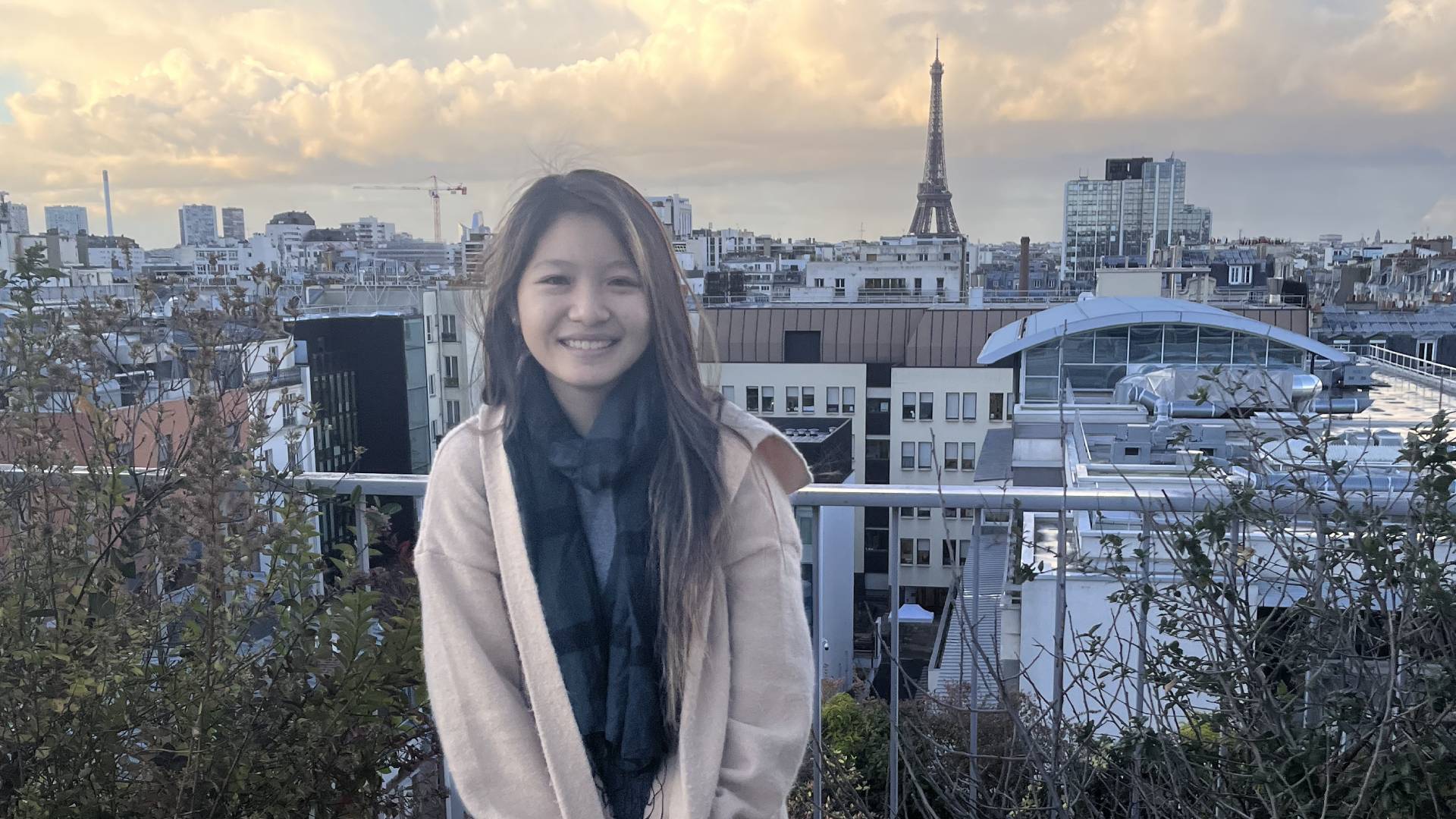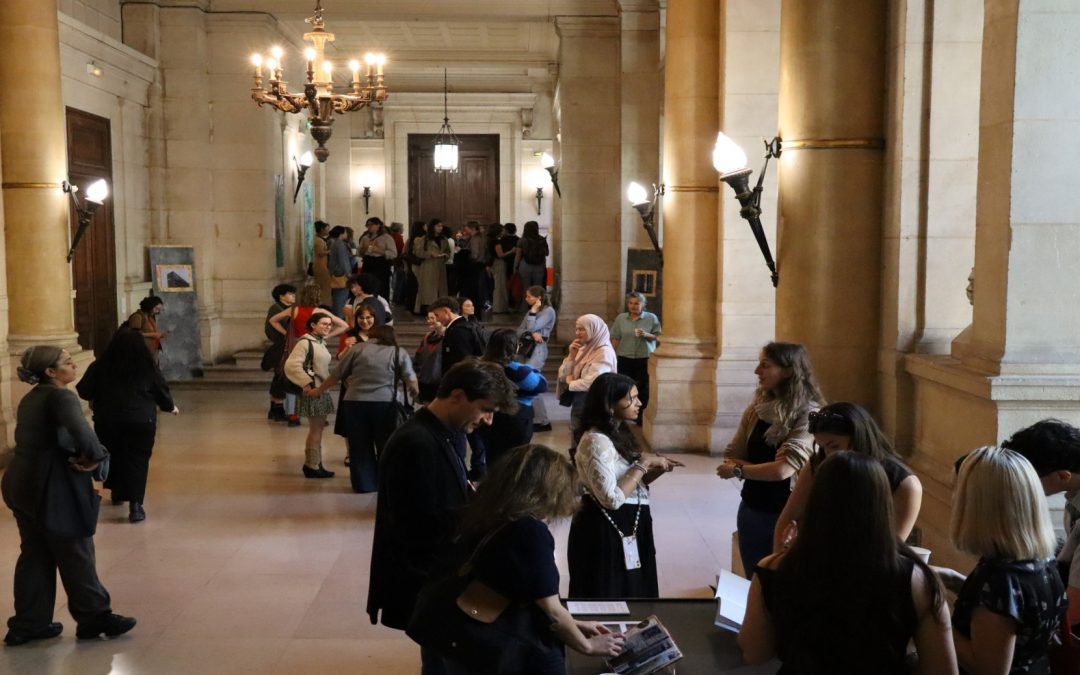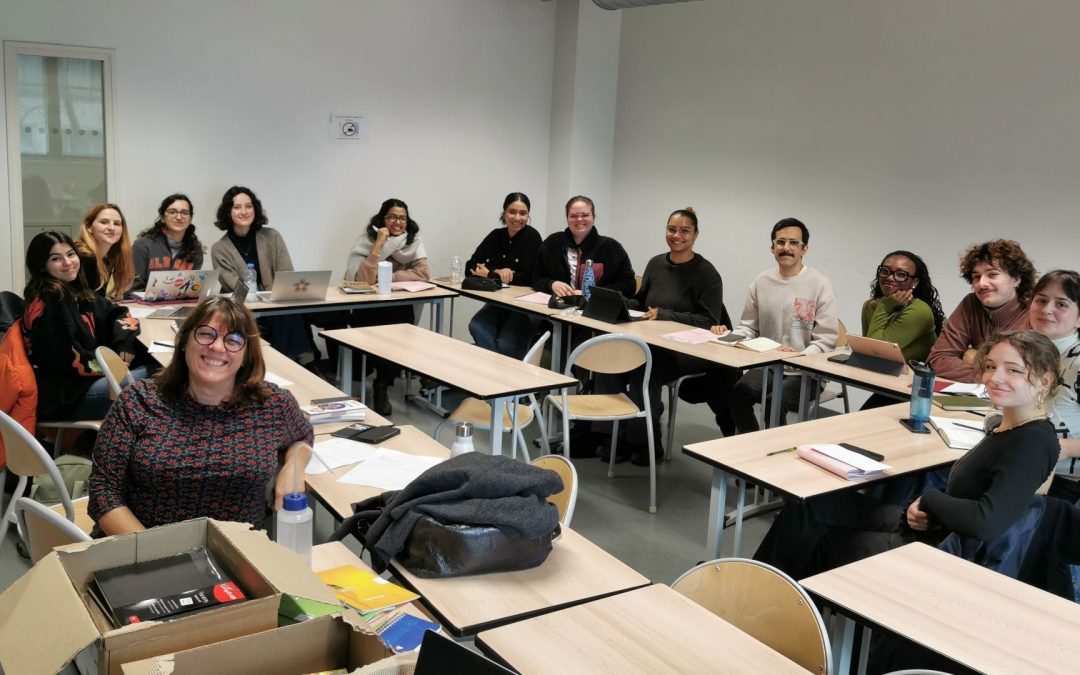Louise Goh, PhD student in neuroscience and brain development at the Yong Loo Lin School of Medicine, National University of Singapore is a recipient of the Paris-NUS PhD mobility grant. She is currently conducting research at Université Paris Cité. Learn more about her experience and the programme.

Université Paris Cité and the National University of Singapore (NUS) are launching a new call for research and doctoral mobility projects.
The call builds on the partnership launched in 2014 by Sorbonne Paris Cité and the National University of Singapore (NUS).
A Decisive Moment
Louise Goh developed an initial interest in neuroscience after spending a few months at Lund University, Sweden, during her undergraduate years. When returning to Singapore after the exchange programme, she learned that her grandmother, with whom she was very close, was diagnosed with dementia. Watching her lose her memories and knowing there was not much she could do for her condition left her feeling helpless. It was during this period that she decided that she wanted to do neuroscience research and to contribute to the growing body of knowledge in this field.
Louise’s PhD supervisor, Dr Jai Santosh Polepalli, informed her that the Paris-NUS programme could be an exciting opportunity to consider. She decided to apply given France is recognised internationally for excellence in neuroscience research. The programme provided a unique chance to work alongside and learn from some of the best scientists in the field.
Can you tell us more about your research?
My research is focused on determining the contributions of synaptic cell adhesion molecules (CAMs) in the synaptic processes of various regions of the brain implicated in learning and memory. Synaptic CAMs are a diverse class of molecules known to facilitate trans-synaptic signalling processes. They play key roles in mediating synapse organisation and specification, maintenance, as well as plasticity. It is the first time in my scientific career that I am conducting research overseas and in France. The environment has proven to be pleasant and collaborative.
Tackling Societal Challenges
According to Louise, despite the increasing advances in science and technology through the decades, and the leaps made by scientists in uncovering new information on the brain and its function, there is still much that we do not know about this enigmatic system. Her research aims to provide further insights on brain function at its most basic computational level – the synapse. With deeper knowledge of the roles, functions and recruitment of different protein classes and subtypes at the synapse level, we can better understand the underlying circuitry and behaviour patterns at a normal cognitive state, and in neurodegenerative and neuropsychiatric diseases. Ultimately, this would pave the way for the creation of better interventions for existing conditions.
In your point of view, how does the Paris-NUS programme foster internationalisation in universities?
I think it offers up a platform for students and researchers from both countries to come together and exchange ideas, with the common goal of driving scientific advance forward. I was given the chance to work in person with Dr Cyril Hanus at the Institut de Psychiatrie et Neurosciences de Paris (IPNP), who specialises in the biogenesis and dynamics of dendritic proteins. The collaboration allows me to conduct experiments to examine glycosylation effects in the specification of synapses, with the guidance of an experienced scientist that is knowledgeable in the field of structural biology and protein dynamics. This complements my existing work in synaptic biology, and helps me approach my research from perspectives I have not considered before.
Inspiring her Peers
For Louise, it has been an eye-opening experience being in Paris and getting to work in one of its research institutes, “You’re really immersed in the culture and way of life of people here, as well as in their work practices. It gives one a greater appreciation for human diversity – everyone has their own unique life experiences and story to tell,” states Louise.
She further adds, “I truly believe that international exposure is vital to everyone undertaking research. It broadens your mind and allows you to encounter like-minded individuals for connection and exchange of ideas. This is a great opportunity that PhD students should apply for, and for the next recipients of the grant: definitely step out of your comfort zone, forge new friendships and make the most out of your time out in the world!
Louise Goh hopes to be able to continue academic research with a postdoctoral fellowship, and ideally to be working on neurodegenerative diseases.
Read more
![[Paris–NUS] 2026 Call for Proposals](https://u-paris.fr/wp-content/uploads/2025/10/2017-BTC-Signage-3-V2-1080x675.jpg)
[Paris–NUS] 2026 Call for Proposals
As part of the strategic partnership between Université Paris Cité and the National University of Singapore (NUS), three new calls for proposals are being launched for 2026. Proposals must be submitted by January 15, 2026. Objectives The Paris–NUS call for proposals...
read more
From Paris to Singapore: a visual retrospective of the exhibition
On the 16th of May, Université Paris Cité hosted the exhibition evening for the programme Singapore: a Nexus of Nature, Culture, and the Arts. Centred around creativity, intercultural exchange, and environmental reflection, the event showcased the work of around...
read more
From Paris to Singapore: UPCité students at the Heart of Sustainable Urbanism
As part of the Paris-NUS partnership and the Gex programme, fifteen students from the English Studies Department of the Faculty of Society and Humanities will be embarking on an academic trip to the National University of Singapore (NUS). The programme provides...
read more![[Paris-NUS] 2024 Calls for Project Results](https://u-paris.fr/wp-content/uploads/2021/12/2017-NUS-Signage-1-1-1080x675.jpg)
[Paris-NUS] 2024 Calls for Project Results
In the framework of our partnership with the National University of Singapore (NUS), two calls for projects were launched in 2024, enabling Université Paris Cité and NUS communities to further consolidate their ties. The calls were aimed at academics and doctoral...
read more